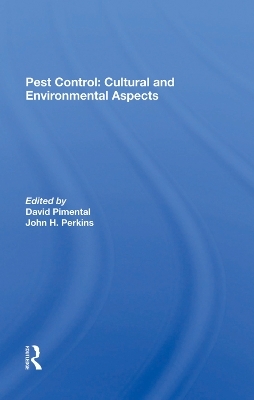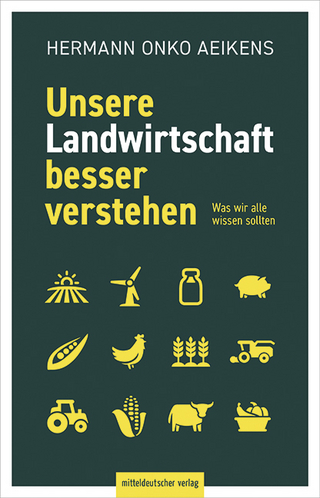
Pest Control: Cultural And Environmental Aspects
Seiten
2020
CRC Press (Verlag)
978-0-367-28278-3 (ISBN)
CRC Press (Verlag)
978-0-367-28278-3 (ISBN)
The field of pest control research, of increasing importance in a world short of food, has been plagued for many years by a variety of problems. This book attempts to look at these problems and answer questions, examining past events and projecting likely impacts on contemporary pest management systems.
The field of pest control research, of increasing importance in a world short of food, has been plagued for many years by a variety of problems, among them (1) the instability (including pesticide resistance) of many control techniques, (2) the continuing need for improved pest management methods to increase world food supplies, and (3) the environmental and social hazards of currently used pesticides. What historical or other factors affect the ability of science to generate useful new technologies to alleviate these three major problems? Are there barriers to cooperation among the different pest control specialists? This book attempts to answer these questions, examining past events and projecting likely impacts on contemporary pest management systems. The authors--sociologists, economists, lawyers, ecologists, political scientists, and pest control scientists--examine the social, economic, political, and ethical factors that are important in shaping pest management systems, as well as developmental patterns that show the importance of these factors in shaping today's systems.
The field of pest control research, of increasing importance in a world short of food, has been plagued for many years by a variety of problems, among them (1) the instability (including pesticide resistance) of many control techniques, (2) the continuing need for improved pest management methods to increase world food supplies, and (3) the environmental and social hazards of currently used pesticides. What historical or other factors affect the ability of science to generate useful new technologies to alleviate these three major problems? Are there barriers to cooperation among the different pest control specialists? This book attempts to answer these questions, examining past events and projecting likely impacts on contemporary pest management systems. The authors--sociologists, economists, lawyers, ecologists, political scientists, and pest control scientists--examine the social, economic, political, and ethical factors that are important in shaping pest management systems, as well as developmental patterns that show the importance of these factors in shaping today's systems.
David Pimentel, John H. Perkins
Preface -- Society and Pest Control -- The Quest for Innovation in Agricultural Entomology, 1945-1978 -- The Economic Milieu of Pest Control: Have Past Priorities Changed? -- Pesticides: Environmental and Social Costs -- Pesticides and Controversies: Benefits versus Costs -- Pest Management and the Social Environment: Conceptual Considerations -- Legal Aspects of Integrated Pest Management
| Erscheinungsdatum | 09.04.2020 |
|---|---|
| Verlagsort | London |
| Sprache | englisch |
| Maße | 148 x 233 mm |
| Gewicht | 648 g |
| Themenwelt | Naturwissenschaften ► Biologie |
| Weitere Fachgebiete ► Land- / Forstwirtschaft / Fischerei | |
| ISBN-10 | 0-367-28278-X / 036728278X |
| ISBN-13 | 978-0-367-28278-3 / 9780367282783 |
| Zustand | Neuware |
| Haben Sie eine Frage zum Produkt? |
Mehr entdecken
aus dem Bereich
aus dem Bereich
was Mikroben, Tiere und Pflanzen eint und wie sie uns ernähren
Buch | Softcover (2024)
Lenos (Verlag)
32,00 €
was wir alle wissen sollten
Buch | Softcover (2023)
Mitteldeutscher Verlag
24,00 €


